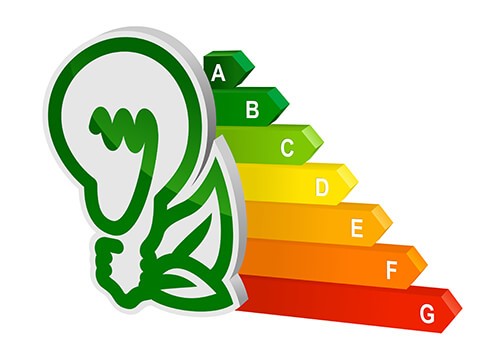
The summertime heat and humidity in Chesapeake, VA, can only be relieved by an effective air conditioning system. Whether you’re installing an air conditioner for the first time, replacing an old, inefficient unit, or cooling a newly finished portion of your home, it’s important to know how many watts the air conditioner uses. Watt usage directly impacts your electricity bill and your home’s carbon footprint. Read on to learn about the typical watt usage of air conditioners.
Portable Air Conditioners
Portable air conditioners use between 2,900 and 4,100 watts per hour. They don’t require ducts, but they do require a drain for the condensate pipe. They also need to exhaust the heat to the outdoors, and this is usually accomplished through a hose connected to a window. These cooling systems are used in home additions and places where window air conditioners aren’t an option.
Window Air Conditioners
Window air conditioners use 500 to 1,400 watts per hour. The smallest units, which are for a single, small room, use about 500 watts per hour. The largest units, which can cool a small one-bedroom apartment, use around 1,400 watts per hour. To boost the efficiency of a window air conditioner, be sure to keep the grille clean and free of dust. Check and replace the unit’s filter every one to three months.
Mini-Split and Ductless Air Conditioners
Mini-split and ductless air conditioning systems use 600 to 800 watts per hour. They don’t require ducts. These cooling systems have low watt usage because there’s no need to push the cooled air through a complicated duct system. Each indoor unit has a small fan, and the outdoor unit has a motor and fan as well.
Central Air Conditioners
Central air conditioners have two possible settings. When they’re in the fan-only mode, they use about 750 watts per hour. That’s about 10 times the watt usage of a ceiling fan. When central air conditioners are in the cooling mode, they use about 3,500 watts per hour. For each ton of cooling capacity, they use 1,000 watts per hour. Central air conditioning systems use a lot of watts of electricity per hour because they must power two motors, two fans, a compressor, and many sensors, safety switches, and other components.
How to Track Your Central Air Conditioner’s Watt Usage
The best way to track your central air conditioner’s watt usage is with a smart thermostat. These units get data from the air conditioner and your home’s heating system. They capture the data through a Wi-Fi connection. You can use the thermostat’s touchscreen to monitor the watt usage per hour. Smart thermostats also include an app for your phone. With the app, you can track watt usage over the course of a day or over a longer period of time. Smart thermostats have algorithms that may make automatic adjustments to the timing of cooling cycles when you’re away from home. They do this through a feature called geofencing. This reduces the total amount of watts used to keep your home cool, and it doesn’t affect your comfort while you’re in the home.
Reasons Why Your Air Conditioner Is Using More Watts of Electricity
If you’re monitoring how many watts of electricity your air conditioner is using, you might get concerned if you notice a sudden spike. There are a few reasons why your air conditioning system may suddenly require more electricity. If the capacitor or contactors are wearing out, the unit may draw more electricity from your home’s wiring. This could lead to a tripped breaker. It’s also possible that your air conditioner has a clogged filter. Dirty air filters impede airflow, and the system will have to work harder to cool and circulate the air. A clogged condensate line may also lead to higher electricity usage. Some other reasons why your air conditioner may use more watts per hour of electricity include a refrigerant leak, dirty evaporator or condenser coils, a worn-out motor, damage to the fan blades, or dirty or leaky air ducts. All of these issues require professional assessment and repairs.
Simmons Heating & Cooling is the trusted air conditioner installation company in Chesapeake. We’re also available for heating installations and heating and air conditioning repair and maintenance. Choose our indoor air quality, air purifiers, ductwork, geothermal, water heater, ductless mini-split, and generator services for consistent comfort, safety, and efficiency. For more details about how many watts of electricity air conditioners use, get in touch with us today.

 view specials
view specials BOOK ONLINE
BOOK ONLINE